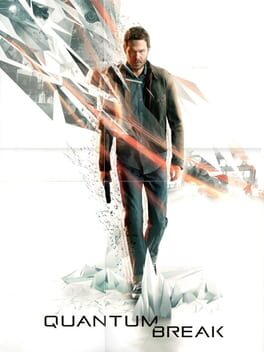vazzarc
2016
A very ambitious game, unfortunately it doesn’t succeed with a lot of its ambitions. The time travel stuff is neat, it looks really great, but then like the TV stuff, while a cool idea, ends up essentially being a setup for a minor boss at the end. Maybe its outcome is different if I made different choices but idk. The ending is also incredibly underwhelming. It just kinda… ends? I assume they would continue it in a sequel but, well, we all know how that turned out, can’t fix the past in that respect.
2016
Pretty solid game. There’s a nice mystery and the relationship between Henry and Delilah is nice. But the supposed emotional core of Henry running away from his wife and his life just isn’t there for me.
The game starts off with a text adventure showing the relationship between Henry and his wife Julia, which is supposed to establish what the game is really about. The problem is I forgot most of what happened there after an hour of trekking through the forest and hanging out with Delilah. There’s one scene where Henry talks to Julia in a dream and a short dialogue exchange about her with Delilah but that’s about it for Julia during the main game. The game then decides to end with a monologue by Delilah about how Henry should see his wife and stop running away from his life, but the game barely shows any of his life, so why am I supposed to care about that? What I care about is the forest, the pathways and shortcuts between locations, slowly accumulating myself to the map and figuring out this mystery of the man stalking Henry and Delilah.
Speaking of the mystery, there’s this trend I’ve noticed in modern storytelling, especially in television, of exciting mysteries revealed to not be a grand conspiracy but rather something smaller, usually a misunderstanding or something. The same year Firewatch came out the first season of Search Party did this, to a more satirical effect, and more recently the first season of Yellowjackets also did this before revealing that, no, actually, there is a conspiracy going on as well. This twist worked really well in Search Party, a show about millennials/zoomers growing up thinking they’re special, before spending their 20s searching for meaning because they can’t accept that they’re not as special as they were made to believe. Firewatch uses this twist to compare Henry with Ned Goodwin, who has also left society in order to cope with losing a close family member, but I’m not sure if it’s entirely successful.
As much as I’m complaining about the implementation of the game’s themes and emotional core, I actually did enjoy this game quite a bit. It’s a perfectly good, short game that I had a lot of fun with.
The game starts off with a text adventure showing the relationship between Henry and his wife Julia, which is supposed to establish what the game is really about. The problem is I forgot most of what happened there after an hour of trekking through the forest and hanging out with Delilah. There’s one scene where Henry talks to Julia in a dream and a short dialogue exchange about her with Delilah but that’s about it for Julia during the main game. The game then decides to end with a monologue by Delilah about how Henry should see his wife and stop running away from his life, but the game barely shows any of his life, so why am I supposed to care about that? What I care about is the forest, the pathways and shortcuts between locations, slowly accumulating myself to the map and figuring out this mystery of the man stalking Henry and Delilah.
Speaking of the mystery, there’s this trend I’ve noticed in modern storytelling, especially in television, of exciting mysteries revealed to not be a grand conspiracy but rather something smaller, usually a misunderstanding or something. The same year Firewatch came out the first season of Search Party did this, to a more satirical effect, and more recently the first season of Yellowjackets also did this before revealing that, no, actually, there is a conspiracy going on as well. This twist worked really well in Search Party, a show about millennials/zoomers growing up thinking they’re special, before spending their 20s searching for meaning because they can’t accept that they’re not as special as they were made to believe. Firewatch uses this twist to compare Henry with Ned Goodwin, who has also left society in order to cope with losing a close family member, but I’m not sure if it’s entirely successful.
As much as I’m complaining about the implementation of the game’s themes and emotional core, I actually did enjoy this game quite a bit. It’s a perfectly good, short game that I had a lot of fun with.

